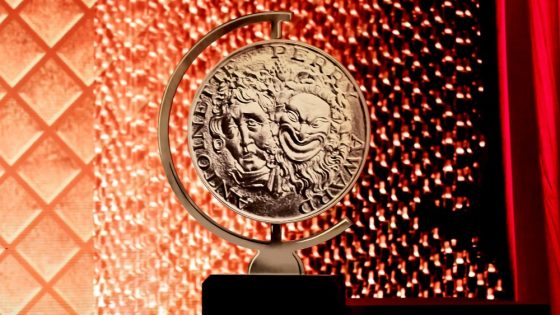INDIANAPOLIS — Bob Bowman had been everywhere in swimming, from Baltimore to the top of the world, from Olympics to Hall of Fames — everywhere except here, pumping his fists at the IU Natatorium, hoisting a trophy, then plunging into a pool, celebrating an NCAA championship.
He had guided Michael Phelps from a Maryland club to immortality. He had coached Team USA and its members to dozens of Olympics medals.
But in 2015, to begin what he called his “post-Michael life,” he moved cross-country to a swimming backwater, Arizona State, in search of a prize unlike any other in the sport.
And on Saturday here at a cacophonous arena in Indy, propelled by his latest otherworldly protégé, Léon Marchand, he won it.
He clenched his hands and pumped them, ardently, euphorically, as if this were Athens or Beijing or London. He steered Arizona State through this four-day men’s championship meet, which Marchand, a world record-holder and world champion, called “the most intense meet of swimming.” He and Marchand schemed and swam the Sun Devils to their first-ever relay triumphs at NCAAs, and the program’s first team national title.
And it was “special,” Bowman said, “because it’s a team achievement.” It wasn’t just him and Michael. It isn’t just him and Léon.
“It’s a whole group of people, and it’s not just these guys on this team,” he explained last week, while still on the cusp. “There have been a lot of people that were part of the evolution of this program that chose to believe in what we were doing, and joined us, and grew a little part of the program, and then passed it on to someone else.
“I think that’s what satisfies me the most: So many people are a part of it,” he continued. “And it’s something that, quite frankly, in 2015, when I got here, was the farthest thing [from what] you could imagine we would do.”
Bob Bowman’s Arizona State turnaround
Bowman and Phelps rose hand in hand from the North Baltimore Aquatic Club to the pinnacle of sport. One was an 11-year-old prodigy when they met. The other became something more than a coach — he was a mentor, eventually something of a father figure who accompanied Phelps on a wild, wearying, all-conquering ride to 28 Olympic medals, 23 of them gold.
The relationship, naturally, defined Bowman’s career. His one venture into college swimming, at Michigan from 2005-08, yielded Big Ten titles but not a natty; it was a footnote.
But as Phelps neared retirement, the collegiate environment began pulling at Bowman. “And I wanted to be in a program where we could build something,” he said, where “it wasn’t already pre-made.”
He found Arizona State, a program that was briefly discontinued in 2008. Prior to Bowman’s arrival, it was an afterthought, so much so that commentator Rowdy Gaines, perhaps the world’s foremost expert on NCAA swimming, can’t remember anything about it.
After taking the job, Bowman admitted: “To some people, this may be somewhat of a surprise — and in many ways, I may be the most surprised.”
“But,” he continued, “it’s clear that this can be such a great story.”
In 2015, he began writing it, word by word, set by set, teenager by teenager. “And it took a lot longer than I thought it would,” Bowman said recently. At their first NCAA championship meet in 2016, they finished tied for 44th. “In the beginning,” Bowman said, “we didn’t have people on the team who were capable of swimming at that level.”
“So, we tried to start recruiting people, and we had some struggles,” Bowman continued. “Because it was hard to convince some of the top swimmers to come swim on a team that didn’t have other top swimmers.”
Grant House, a freestyler from Ohio, was the first to take the leap of faith in 2017. And slowly, both the realities and perceptions of ASU began to change. House set new standards at Bowman’s crack-of-dawn practices. He also lent legitimacy to the coach’s pitch. And other elite recruits began to follow.
The biggest, undoubtedly, was Marchand, a Frenchman who initially eyed perennial NCAA powers. His top choice was Cal, a top-two finisher at NCAAs without fail since 2010. But Cal didn’t offer a full scholarship. Marchand considered other schools. And “what tipped the scales,” he’d later say, “was the coach” — Bowman.
Marchand arrived in the fall of 2021, as a 19-year-old Olympian, and “when he came in is when it took off,” Bowman said of his program. Marchand continued accelerating toward Phelpsian greatness. Within two years, he shattered and re-shattered NCAA records; and toppled Phelps’ last remaining world record, the longest-lasting mark in the history of swimming.
But he also bought, wholeheartedly, into the team concept; into the “Sun Devil family.” He embedded himself in a burgeoning culture, then committed to building it. He pushed elder teammates. He helped attract new ones from abroad. He dined with them. He played “Call of Duty” with them. He supported them. He “gave everybody the example of what real excellence is, at the top level,” Bowman said. And he loved it.
By March 2023, he was a double world-champion; but last year’s NCAA meet, in which ASU finished second, a new high-water mark, “was maybe the most fun I’ve ever had,” he said afterward.
This year’s one-upped it. Friday night, Marchand said, was the best he’s ever had at a swim meet, “for sure.” He coasted to a 400-yard individual medley title — and conserved energy for two hours later, sacrificing another record so that he could lead ASU to a first relay title in program history.
In between, he stood in a pack of teammates and coaches on the pool deck, and hopped up and down, cheering on Hubert Kos and Owen McDonald in the 100-yard backstroke final.
“[It’s] very rare for an international kid to come in and be so animated,” Gaines told Yahoo Sports — because back home, in many countries, swimming is a very individual sport. “So for him to be into it, and be at the level he is,” Gaines said, “it just says something about his character.”
‘Started from zero … now we made it’
Marchand smashed two NCAA records here in Indianapolis. He won his max allotment of individual titles. His favorite, though, seemed to be the relays. He leaned into the pool after Friday’s and forcefully congratulated Jonny Kulow after Kulow’s heroic anchor leg. “Let’s go!” Marchand exclaimed — or something along those lines; Kulow couldn’t remember. “That was more of a conversation of the eyes,” Kulow said with a smile. “I could tell the raw emotion that he was feeling.”
Then they all looked up into section 210, where scores of family and fans had gathered and galvanized them with noise all week.
Marchand’s parents, Xavier and Céline; his brother, Oscar; and a family friend, who serves as their lawyer, had all traveled from France to see the show. They participated in every bit of the pageantry, waving rally towels, wielding plastic Sun Devil tridents. Before, during and after every race — even those that didn’t involve Léon — Oscar roared with all his might.
They all roared louder than ever on Saturday when freshman Ilya Kharun closed strong to win the 200 butterfly and clinch the team title. (They eventually won with 523.5 points to runner-up Cal’s 444.5.)
Bowman, after a first pump, turned around, and seemed to take several seconds to savor the moment. Over the hours that followed, after years of uncompromising work, he made a point to “participate in the joy of it.” He stood, in his black polo and khaki shorts, at the corner of the pool, soaking in the scene, as peers trickled by to congratulate him. “There’s nothing like the first one,” a courteous Cal assistant coach told him. “I’m proud of you, man.”
His pupils were proud, too. As they pranced around the pool, they also pondered the scale of their accomplishment. “When I first committed,” fifth-year senior Jack Dolan said, “we didn’t even think that this could happen.”
And certainly, nobody did back in 2015. When began talking about national titles, some people scoffed: “OK, you can’t be serious.”
“But,” Bowman said, “we just sort of stayed with it. And believed.”
Their belief climaxed Saturday night around 8:52 p.m., when Kulow anchored another relay, the 4×100-yard freestyle, to victory in NCAA-record time. Bowman leapt up and down, his arms stretching skyward. He bear-hugged his staff. He beamed with pride. He had put together what Cal’s Destin Lasco called a “supersquad”; and up and down the roster, they’d delivered.
A minute later, Marchand summed up the bigger picture. This, he said with his right arm draped around Kulow, was his latest “most fun night I’ve ever had in swimming.” And then he deflected attention toward Bowman. “He started from zero here,” Marchand said. “And now we made it.”
Bowman smiled. He had been everywhere, and done everything, but “this,” the bespectacled coach later said, “is way up there” on his list of accomplishments, “right at the top.”
Source Agencies



